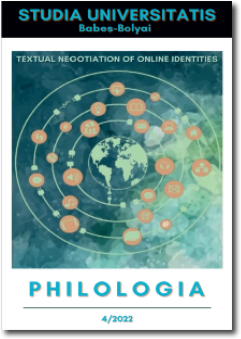KOLONIALE FREMDHEITSERFAHRUNG UND BIKULTURELLE EHESCHLIESSUNGEN: ZUR KOLONIALEN AMBIVALENZ BEI JESCO VON PUTTKAMER UND PIERRE LOTI
COLONIAL EXPERIENCE OF STRANGENESS AND BICULTURAL MARRIAGES: ON COLONIAL AMBIVALENCE IN JESCO VON PUTTKAMER AND PIERRE LOTI
Author(s): Romuald Valentin Nkouda SopguiSubject(s): French Literature, German Literature
Published by: Studia Universitatis Babes-Bolyai
Keywords: colonial travel; foreignness; ambivalence; intercultural marriages; reciprocity;
Summary/Abstract: Colonial Experience of Strangeness and Bicultural Marriages: On Colonial Ambivalence in Jesco von Puttkamer and Pierre Loti. The following article goes into the literary analysis of colonial strangeness and bicultural marriages through two colonial texts. Jesco von Puttkamer and Pierre Loti exemplify the subject of colonial strangeness from a travel experience. In their texts, colonial experience of foreignness focuses on excerpt of the colonists from their familiar surroundings with travel. The journey in the sign of colonization goes hand in hand with the perception of the foreign space and its inhabitants. Puttkamer's and Loti's main characters do not however abide by the colonial rule of radical distancing from the natives because they have romantic relationships with black women. In both cases, it is an ambivalent attitude of the colonial masters towards the non-European foreign region, which oscillates between positive and negative stereotypes. The depictions of mixed marriages are also characterized by ambivalence, because the black woman acts both as an object of fascination or desire and as a subject of racial power differences. These statements justify the thesis of colonial ambivalence, which is the subject of discussion here. The authors thus confirm the following results, which the article concludes with; namely, that the line between exotic strangeness and colonial stereotyping is difficult to draw. The analyzed narrative sequences also provide information that colonial intermarriage leads to mutual transformations. As an exchange of bodies, colonial marriages illustrate the interweaving of the colonial periphery and the European metropolis. To achieve the above goals, Whiteness and (post)colonial Studies provide theoretical foundations that make my investigation more plausible.
Journal: Studia Universitatis Babes-Bolyai - Philologia
- Issue Year: 67/2022
- Issue No: 4
- Page Range: 477-493
- Page Count: 17
- Language: German

